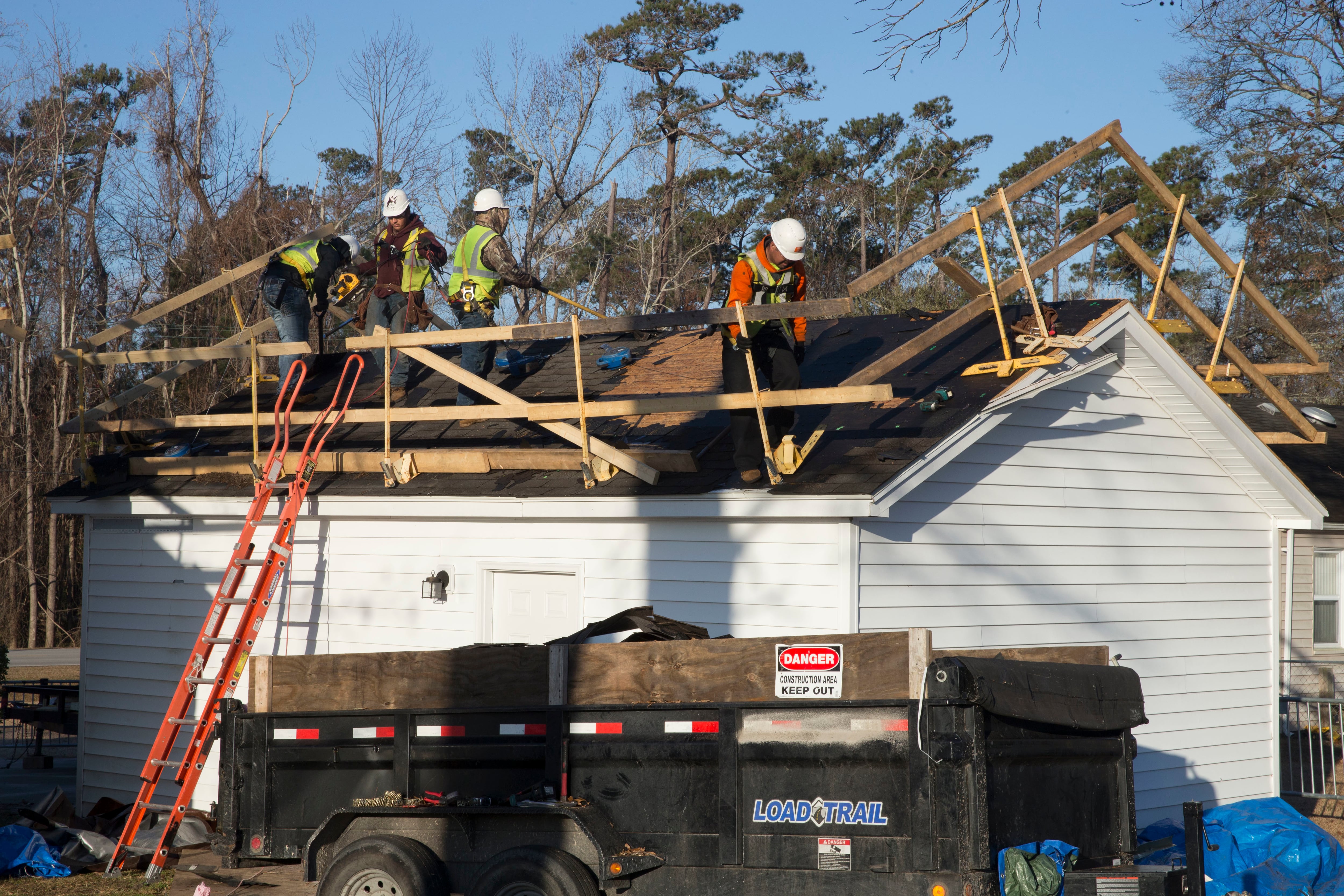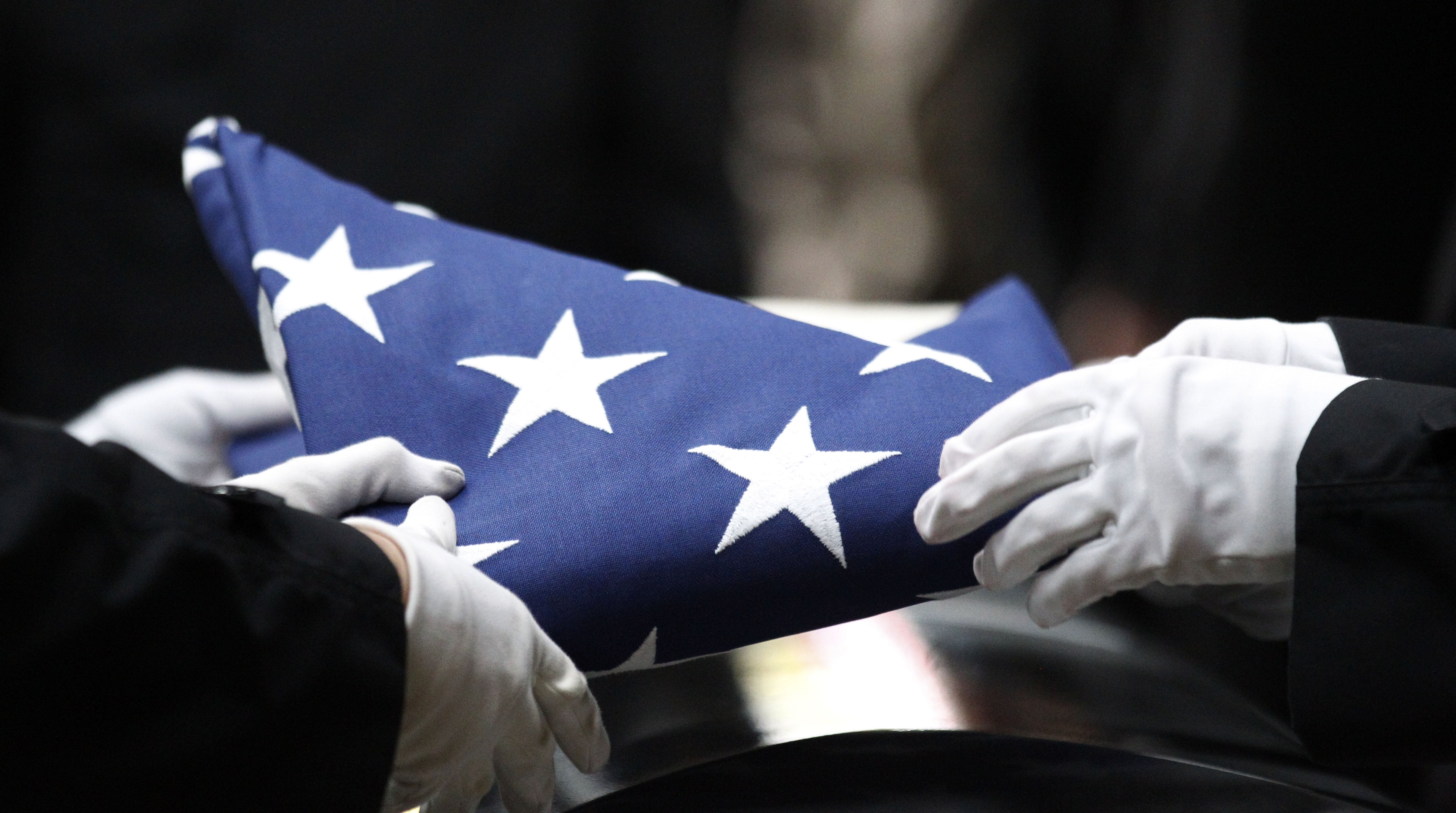More than half of military families who responded to a survey about their privatized housing reported having a negative experience, according to a new report released on the eve of a hearing where lawmakers will scrutinize the condition of military housing.
Some families reported living with problems such as black mold, lead paint, lead in their water, faulty wiring, poor water quality, pesticides, and a wide variety of vermin, bugs and other animals such as bats, skunks, squirrels and snakes in their homes, according to a preliminary analysis of the survey data, reported by the Military Family Advisory Network.
The organization conducted the survey online for one week, from Jan. 30 to Feb. 6, and garnered 16,779 responses. Of those, 14,558 met the requirement of living in privatized military family housing currently or within the past three years. More than half of those who responded were in the ranks of E4 to E6; and enlisted overall made up 75 percent of those who responded.
As they dig more into the data, researchers will look at whether the experiences differ by rank, and whether there are any geographic areas of concern, and concerns with any particular management companies, said Shannon Razsadin, executive director of the organization.
The survey was not a scientific random sampling. However, their respondents are “pretty reflective of the full force,” she said, "so we’ll be able to identify if this is something that tends to be more egregious at some ranks than others. The online survey was pushed out through their advisory board and on social media, she said.
Razsadin said she was “shocked” at how many responses they received in the one-week period, and described the dissatisfaction rate as alarming. The sheer number of responses showed that “people felt safe and comfortable coming to us and sharing their stories, and knowing we would do something with them,” she said. Some families said they feared retribution for making complaints, and some reported attempts by housing company representatives, and some military commands, to silence their complaints.
“Some are dealing with major long-term implications, and while things probably can’t be made right for them, we do hope that moving forward, families have a safe place to live,” Razsadin said. With the other challenges that military families deal with, such as deployments and frequent moves, she said, “we feel strongly that a safe home is not something that a family should have to worry about.”
Some of those long-term implications are health issues, with illnesses that the families report are caused by poor housing conditions. Further analysis is being conducted to determine how many families reported such illnesses related to their housing, said Shelley Kimball, research director for MFAN. Some families reported illnesses in their open-ended answers to questions that invited them to share their stories.
On Wednesday, military families, officials at five privatized housing companies, and DoD and service officials will testify at a Senate Armed Services Committee hearing. The four family members testifying are from across the services, representing both officers and enlisted service members, according to a Senate staff member.
Razsadin said Military Family Advisory Network’s research also included interviewing 40 families who provided contact information when they completed the survey.
The residents who responded to the survey included a mix of those living in older, and often, historic homes, as well as those living in newer homes, Kimball said, but they’ll know more about where the problems are as they delve into the survey data. Lead paint issues indicate that they are older homes, because lead paint has been banned since 1978.
RELATED

As part of the military family housing privatization initiative which began in 1996, the services entered into contracts with private companies to take over most of their family housing in the U.S., and the companies invested money into renovating and replacing dilapidated housing that had suffered from years of lack of upkeep. It was a problem that DoD officials said would otherwise have taken 30 years and $16 billion of taxpayer dollars to fix. The companies’ income comes from service members’ housing allowances.
Over the years, the Government Accountability Office has issued several reports about the need for DoD and the services to address various management and oversight issues related to the housing privatization projects. Now lawmakers are again questioning the government’s oversight in the face of concerns raised by some residents.
Those who responded to the MFAN survey listed 35 different property management companies, with the most commonly cited being Lincoln Military Housing, Balfour Beatty Communities, Hunt Military Communities, Corvias Military Living, Winn Companies and Michael’s Military Housing. Researchers haven’t yet delved into the satisfaction rates for each company, Kimball said.
Overall, 16 percent of those who responded rated their experience with their housing management company as positive; nearly 29 percent said it was neutral; and more than 55 percent said their experiences were negative.
“I will tell you that from looking at the open-ended responses of people telling stories, they were overwhelmingly negative stories,” Kimball said. “I found a few that said, ‘we’re fine, we’re okay,’ but they were in the minority for sure.”
These results contradict the resident satisfaction rates reported by privatized housing management companies.
"Through our preliminary research it has become apparent that there is a disconnect between our finds related to resident satisfaction and what has been reported by privatized housing companies,” the survey report stated.
“We think it would be helpful to have an unbiased source take a look at it, like this questionnaire we put out, so there’s a more authentic understanding of what’s happening, and the families’ experience in privatized housing,” Razsadin said. The organization recommends that DoD collaborate with nonprofits who support military families, like their organization, “in support of metrics-based, performance-tied initiatives” to gain this understanding.
Among other preliminary findings:
- Those who responded often file reports asking that their problems be addressed, but their requests are often denied or ignored.
- Families often have no recourse, and often don’t have options outside privatized military housing, due to limited housing allowances and/or a tight rental market. In one case, a family reported having to move out of their home after their pediatrician told them their child couldn’t be in the home for more than one hour at a time because of black mold. The family was charged $356 for wear and tear on their home, yet three weeks later, their house was condemned.
Deputy Editor Leo Shane III contributed to this report.
Karen has covered military families, quality of life and consumer issues for Military Times for more than 30 years, and is co-author of a chapter on media coverage of military families in the book "A Battle Plan for Supporting Military Families." She previously worked for newspapers in Guam, Norfolk, Jacksonville, Fla., and Athens, Ga.










